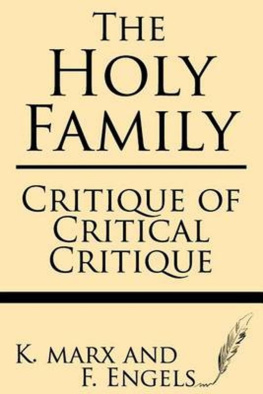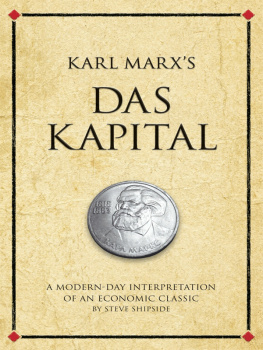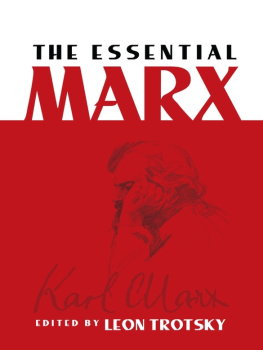Karl Marx in the Deutsche-Brsseler Zeitung
Moralising Criticism and Critical Morality
A Contribution to German Cultural History
Contra Karl Heinzen
Source : MECW Volume 6, p. 312;
Written : at the end of October 1847;
First published : in the Deutsche-Brsseler-Zeitung Nos. 86,87,90,92 and 94; October 28 and 31; November 11, 18 and 25, 1847.
Deutsche-Brsseler-Zeitung No. 86, October 28, 1847
Shortly before and during the period of the Reformation there developed amongst the Germans a type of literature whose very name is striking grobian literature. In our own day we are approaching an era of revolution analogous to that of the sixteenth century. Small wonder that among the Germans grobian literature is emerging once more. Interest in historical development easily overcomes the aesthetic revulsion which this kind of writing provokes even in a person of quite unrefined taste and which it provoked back in the fifteenth and sixteenth centuries.
Flat, bombastic, bragging, thrasonical, putting on a great show of rude vigour in attack, yet hysterically sensitive to the same quality in others; brandishing the sword with enormous waste of energy, lifting it high in the air only to let it fall down flat; constantly preaching morality and constantly offending against it; sentiment and turpitude most absurdly conjoined; concerned only with the point at issue, yet always missing the point; using with equal arrogance petty-bourgeois scholarly semi-erudition against popular wisdom, and so-called sound common sense against science; discharging itself in ungovernable breadth with a certain complacent levity; clothing a philistine message in a plebeian form; wrestling with the literary language to, give it, so to speak, a purely corporeal character; willingly pointing at the writers body in the background, which is itching in every fibre to give a few exhibitions of its strength, to display its broad shoulders and publicly to stretch its limbs; proclaiming a healthy mind in a healthy body; unconsciously infected by the sixteenth centurys most abstruse controversies and by its fever of the body; in thrall to dogmatic, narrow thinking and at the same time appealing to petty practice in the face of all real thought; raging against reaction, reacting against progress; incapable of making the opponent seem ridiculous, but ridiculously abusing him through the whole gamut of tones; Solomon and Marcolph, Don Quixote and Sancho Panza, a visionary and a philistine in one person; a loutish form of indignation, a form of indignant loutishness; and suspended like an enveloping cloud over it all, the self-satisfied philistines consciousness of his own virtue such was the grobian literature of the sixteenth century. If our memory does not deceive us, the German folk anecdote has set up a lyrical monument to it in the song of Heineke, der starke Knecht. To Herr Heinzen belongs the credit of being one of the re-creators of grobian literature and in this field one of the German swallows heralding the coming springtime of the nations.
Heinzens manifesto against the Communists in No. 84 of the Deutsche-Brsseler-Zeitung has been our most immediate instigation in studying that degenerate variety of literature whose historically interesting aspect for Germany we have indicated. We shall describe the literary species represented by Herr Heinzen on the basis of his manifesto, exactly as literary historians characterise the writers of the sixteenth century from the surviving writings of the sixteenth century, for instance the goose-preacher [Thomas Murner]
Deutsche-Brsseler-Zeitung No. 87, October 31, 1847*
* My reason for answering Herr Heinzen is not to rebut the attack on Engels. Herr Heinzens article does not need a rebuttal. I am answering because Heinzens manifesto furnishes entertaining material for analysis. K. M.
Biron. Hide thy head, Achilles: here comes Hector in arms.
...................
King. Hector was but a Troyan in respect of this.
Boyet. But is this Hector?
Dumain. I think Hector was not so clean-timbered.
...................
Biron. This cannot be Hector.
Dumain. Hes a god or a painter; for he makes faces.
[Shakespeare, Loves Labour Lost ]
But that Herr Heinzen is Hector, of that there is no doubt.
I have long been visited, he confesses to us, by a premonition that I would fall by the hand of a communist Achilles. Now that I have been attacked by a Thersites, the danger thus averted makes me bold once more, etc.
Only a Hector can have a premonition that he will fall by the hand of an Achilles.
Or did Herr Heinzen derive his picture of Achilles and Thersites not from Homer but from Schlegels translation of Shakespeare?
If that is so, he assigns to himself the part of Ajax.
Let us look at Shakespeares Ajax.
Ajax. I will beat thee into handsomeness.
Thersites. I shall sooner rail thee into wit; but thy horse will sooner con an oration than thou learn a prayer without book. Thou canst strike, canst thou? a red murrain o thy jades tricks!
Ajax. Toadstool, learn me the proclamation.
.................
Thersites. Thou art proclaimed a fool, I think.
............
Ajax. You whoreson cur.
Thersites. Do, do.
Ajax, Thou stool for a witch!
Thersites. Ay, do, do;... thou scurvy-valiant ass! thou art here but to thrash Trojans; and thou art bought and sold among those of any wit, like a barbarian slave ... a great deal of your wit too lies in your sinews, or else there be liars.
.................
Thersites. A wonder!
Achilles. What?
Thersites. Ajax goes up and down the field, asking for himself.
Achilles. How so?
Thersites. He must fight singly tomorrow, and is so prophetically proud of an heroical cudgelling that he raves in saying nothing.
Achilles. How can that be?
Thersites. Why, he stalks up and down like a peacock, a stride and a stand; ruminates like a hostess that bath no arithmetic but her brain to set down her reckoning; bites his lip with a politic regard. as who would say, There were wit in this head, an twould out.,. I had rather be a tick in a sheep than such a valiantignorance.*
* Shakespeare, Troilus and Cressida.
Whichever character-mask Herr Heinzen now appears wearing Hector or Ajax scarcely has he entered the arena when he proclaims to the spectators in a mighty voice that his adversary has not dealt him the coup de grce. With all the composure and epic breadth of an ancient Homeric hero, he expounds the reasons for his escape. I owe my escape, he tells us, to an error on natures part. Nature has not fitted me for my adversarys level. He towers over him, the taller by two heads, and that is why the two swinging blows of his little executioner could not reach his literary neck. Herr Engels, it is stressed most emphatically and repeatedly, Herr Engels is little, a little executioner, a little person. He then says, with one of those turns of phrase such as we only come across in the old heroic lays, or in the puppet play of the giant Goliath and the small David: If you were hanging that high from a lamp-post nobody would ever find you again. That is the giants humour, at once whimsical and spine-chilling.
It is not just his neck, but his whole nature, his whole body for which Herr Heinzen thus finds literary application. He has put his little adversary beside him in order to set off his own physical perfection in fitting contrast. The deformed dwarf carries an executioners axe under his tiny arm, perhaps one of those little guillotines which were given to children as toys in 1794. He, the terrible warrior on the other hand, wields no other weapon in his furious-playful arrogance than the birch-rod, of which, he informs us, he has long made use to chastise the naughtiness of those bad boys, the Communists. The giant is content to confront his insect-sized foe as a
Next page









